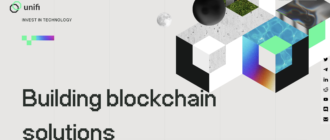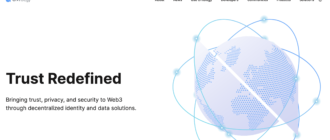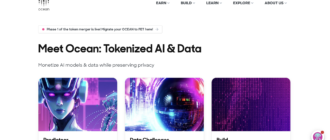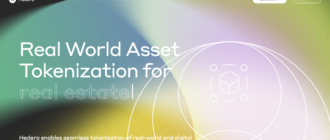In the rapidly evolving world of blockchain technology and cryptocurrency, numerous projects stand out for their unique contributions and innovative approaches. One such project is Sun, known for its cryptocurrency SUN. This article delves into the various aspects of the Sun project, offering a comprehensive analysis of its core components and potential impact on the crypto ecosystem. Readers will gain insight into the foundational elements of Sun, from its technological framework to its economic model, as well as an understanding of its broader ecosystem and growth prospects. By the end of this exploration, you will have a thorough grasp of what makes Sun a noteworthy player in the cryptocurrency space.
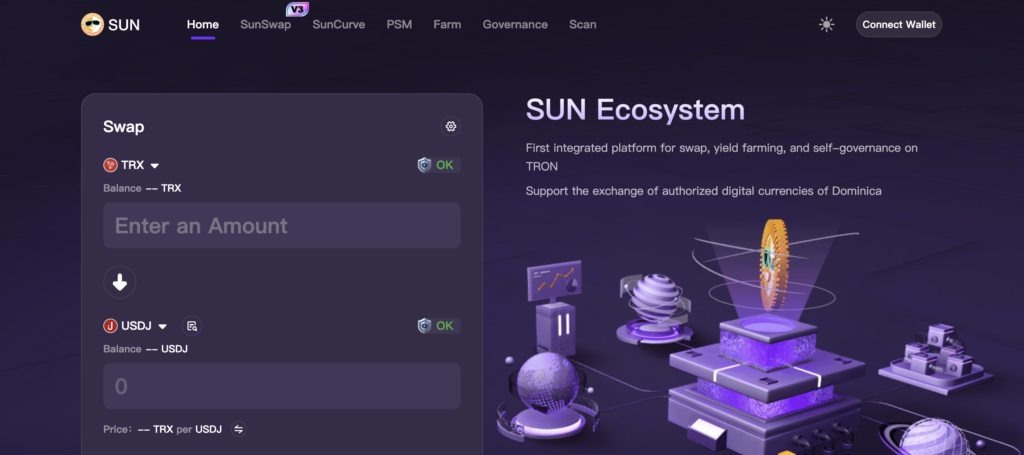
What is Sun?
Sun is a blockchain project designed to facilitate decentralized finance (DeFi) applications on the TRON network. At its core, Sun aims to create a comprehensive and user-friendly platform that supports the creation, management, and execution of DeFi protocols. The project leverages the high throughput and low latency of the TRON blockchain to provide efficient and scalable DeFi solutions. SUN, the project’s native cryptocurrency, plays a pivotal role in governance, staking, and liquidity mining within the Sun ecosystem. The overarching goal of Sun is to enhance the DeFi experience by offering robust infrastructure and innovative financial products, thereby contributing to the broader adoption of decentralized finance.
Project History
The Sun project was launched in September 2020. From its inception, Sun aimed to integrate deeply with the TRON blockchain, capitalizing on TRON’s existing infrastructure to build a powerful DeFi ecosystem. Key milestones in the development of Sun include the initial release of its staking and liquidity mining protocols, which quickly gained traction within the DeFi community. In its early stages, the project focused on fostering community engagement through decentralized governance, allowing SUN token holders to propose and vote on critical protocol upgrades and initiatives.
Throughout its development, Sun has continuously expanded its suite of DeFi services, incorporating new financial products and partnerships to bolster its ecosystem. Significant updates and enhancements have included the introduction of yield farming, advanced staking options, and cross-chain compatibility features. These milestones reflect Sun’s commitment to innovation and its strategic approach to meeting the evolving needs of the DeFi market.
How Sun Works
The Sun project is built on the TRON blockchain, utilizing its high-performance infrastructure to support decentralized finance (DeFi) applications. The core technologies that power Sun include smart contracts, liquidity mining protocols, and decentralized governance mechanisms. These technologies work together to create a seamless DeFi ecosystem where users can engage in various financial activities such as staking, yield farming, and voting on governance proposals.
Sun differentiates itself from other DeFi projects through its deep integration with the TRON network, which offers superior transaction speeds and lower costs compared to many other blockchains. This integration allows Sun to provide a more efficient and scalable DeFi platform. Furthermore, the project emphasizes community-driven development and governance, ensuring that SUN token holders have a significant influence on the project’s direction and evolution.
Sun Blockchain and Consensus Mechanism
Sun operates on the TRON blockchain, which employs a Delegated Proof of Stake (DPoS) consensus mechanism. In DPoS, a limited number of nodes, known as Super Representatives, are elected by the community to validate transactions and create new blocks. This system enhances the network’s scalability and transaction throughput, making it well-suited for the high demands of DeFi applications.
The technical architecture of the TRON blockchain includes several layers, such as the storage layer, core layer, and application layer. The storage layer ensures data integrity and supports the efficient storage of large amounts of blockchain data. The core layer handles consensus and smart contract execution, leveraging the DPoS mechanism to achieve fast and secure transaction processing. Finally, the application layer provides interfaces for developers to build and deploy decentralized applications (dApps) on the TRON network.
In addition to these features, the Sun project utilizes TRON’s smart contract capabilities to automate DeFi processes, ensuring transparency and security in all financial transactions. Smart contracts are self-executing contracts with the terms directly written into code, eliminating the need for intermediaries and reducing the risk of human error.
Overall, the combination of TRON’s robust blockchain infrastructure and Sun’s innovative DeFi technologies creates a powerful platform for decentralized finance, setting it apart from other projects in the space.
Tokenomics of Sun
SUN is a token, not a coin, as it exists on the TRON blockchain rather than operating on its own independent blockchain. The tokenomics of SUN are intricately designed to support the project’s decentralized finance (DeFi) objectives, particularly in the areas of governance, staking, and liquidity mining.
Emission Model
The emission model of SUN follows a deflationary structure. Initially, SUN tokens were distributed through a process known as “Genesis Mining,” where users could lock up TRX, TRON’s native cryptocurrency, to mine SUN tokens. This initial distribution method ensured a fair launch and wide distribution among the TRON community.
Over time, the emission rate of SUN tokens decreases, aligning with the project’s deflationary principles. This reduction in emission helps to maintain the value of SUN by controlling supply inflation. Additionally, the Sun project implements token burns, where a portion of the tokens used in transactions and governance are permanently removed from circulation, further reducing the total supply and potentially increasing the token’s scarcity and value.
Utility and Governance
SUN tokens have multiple utilities within the Sun ecosystem. Primarily, they serve as governance tokens, allowing holders to participate in the decision-making process of the project. Token holders can propose and vote on various initiatives, including upgrades, protocol changes, and the introduction of new features. This decentralized governance model ensures that the community has a direct impact on the project’s development and strategic direction.
In addition to governance, SUN tokens are used in various DeFi activities such as staking and yield farming. Users can stake their SUN tokens to earn rewards, contributing to the security and functionality of the network. Yield farming allows users to provide liquidity to decentralized exchanges and earn SUN tokens as incentives, promoting liquidity and active participation within the ecosystem.
Market Performance
The market performance of SUN tokens has been subject to the volatility typical of the cryptocurrency market. The token’s value is influenced by several factors, including overall market conditions, developments within the Sun project, and broader trends in the DeFi space. The deflationary emission model and periodic token burns contribute to the long-term value proposition of SUN, making it an attractive asset for investors looking to participate in the DeFi sector on the TRON network.
Overall, the tokenomics of SUN are designed to create a sustainable and value-driven ecosystem, supporting the project’s goals of decentralization, community involvement, and financial innovation.
Where to Buy SUN Cryptocurrency
SUN cryptocurrency can be purchased on several major cryptocurrency exchanges, providing accessibility for traders and investors worldwide. Here are some of the prominent exchanges where SUN is actively traded:
- Binance: As one of the largest and most reputable cryptocurrency exchanges, Binance offers extensive trading pairs for SUN, including both crypto-to-crypto and fiat-to-crypto options.
- HTX (formerly Huobi): HTX is a well-established exchange known for its wide range of supported assets and robust trading infrastructure. SUN can be traded here against various other cryptocurrencies.
- MEXC: This exchange is known for its user-friendly interface and a wide selection of cryptocurrencies, including SUN, providing multiple trading pairs and liquidity options.
- Bybit: Bybit is renowned for its derivatives and spot trading capabilities. SUN is available for spot trading, catering to both beginners and experienced traders.
- KuCoin: KuCoin offers a diverse range of trading pairs for SUN and is known for its strong security measures and user-friendly platform.
These exchanges provide various features such as advanced trading tools, high liquidity, and competitive fees, making them ideal for purchasing SUN tokens.
Where to Store SUN Tokens
Once acquired, SUN tokens need to be stored securely in a compatible cryptocurrency wallet. Here are some recommended options for storing SUN tokens:
- TronLink Wallet: As the official wallet of the TRON network, TronLink offers full support for SUN tokens. It provides a user-friendly interface, easy access to decentralized applications (dApps), and robust security features.
- Trust Wallet: A popular multi-currency wallet, Trust Wallet supports SUN and offers features such as staking, integrated exchanges, and enhanced security protocols.
- Ledger Nano S/X: For those seeking the highest level of security, Ledger hardware wallets are an excellent choice. These wallets store SUN tokens offline, significantly reducing the risk of hacking and theft.
- Atomic Wallet: This wallet supports a wide range of cryptocurrencies, including SUN. It provides features such as built-in exchanges, staking, and private key control.
- Math Wallet: Math Wallet is known for its extensive blockchain support and compatibility with TRON-based tokens like SUN. It offers both mobile and browser extension versions, catering to various user preferences.
Each of these wallets offers distinct features and levels of security, allowing users to choose the best option based on their needs. Whether you prefer a hardware wallet for maximum security or a software wallet for ease of use, these options ensure your SUN tokens are stored safely and accessibly.
Project Prospects
The growth of the Sun project is anchored in its robust technological foundation and strategic integration with the TRON blockchain. This integration provides Sun with high throughput, low latency, and a scalable infrastructure, making it well-suited for the fast-paced demands of decentralized finance (DeFi) applications. The project’s development trajectory is further bolstered by its active community and decentralized governance model, which ensures that development is aligned with user needs and market trends.
Clients and Partners
Sun primarily serves the DeFi community, including individual investors, liquidity providers, and institutional players seeking efficient and scalable DeFi solutions. The project’s strategic partnerships further enhance its ecosystem and user base. Key partners include:
- TRON Foundation: As the underlying blockchain, TRON’s support is critical to Sun’s operations and technological advancements.
- JustSwap: A decentralized exchange on the TRON network that facilitates trading and liquidity provision for SUN tokens.
- BitTorrent: Integration with BitTorrent’s decentralized storage solutions enhances the capabilities and reach of the Sun ecosystem.
These partnerships provide synergistic benefits, expanding Sun’s functionality and market reach, thereby fostering growth and adoption.
Growth Forecast
The future of Sun looks promising, with several factors contributing to its potential growth:
- DeFi Expansion: As the DeFi sector continues to grow, Sun is well-positioned to capture a significant market share due to its efficient and user-friendly platform.
- Technological Advancements: Ongoing updates and enhancements to the TRON blockchain, along with Sun’s innovative DeFi solutions, will likely attract more users and investors.
- Community Engagement: The project’s focus on decentralized governance ensures that development is community-driven, aligning with user demands and market trends.
- Regulatory Developments: Positive regulatory developments in the cryptocurrency space could further enhance Sun’s adoption and integration into traditional financial systems.
Sun Ecosystem
The Sun ecosystem is a comprehensive network of DeFi applications and services that interact seamlessly with the TRON blockchain. This ecosystem includes a variety of components that cater to different aspects of decentralized finance. Key elements of the Sun ecosystem include:
- Staking Platforms: Allowing users to stake SUN tokens and earn rewards, contributing to network security and liquidity.
- Yield Farming Protocols: Enabling users to provide liquidity and earn SUN tokens, promoting active participation and liquidity within the ecosystem.
- Decentralized Exchanges (DEXs): Platforms like JustSwap facilitate trading of SUN tokens and other TRON-based assets.
- Governance Mechanisms: Decentralized governance tools that enable SUN token holders to propose and vote on project developments and protocol changes.
The cohesive integration of these components creates a vibrant and dynamic ecosystem, positioning Sun as a key player in the DeFi landscape on the TRON blockchain. This ecosystem not only supports the current functionalities but also provides a solid foundation for future innovations and expansions.
Conclusion
The Sun project and its associated cryptocurrency, SUN, present a multifaceted and intriguing case within the realm of blockchain and digital assets. As the crypto landscape continues to expand and evolve, understanding projects like Sun is essential for grasping the full spectrum of technological advancements and economic opportunities within the industry. The insights provided here aim to equip readers with a nuanced perspective on Sun, enabling informed discussions and considerations about its future trajectory in the world of cryptocurrency.

